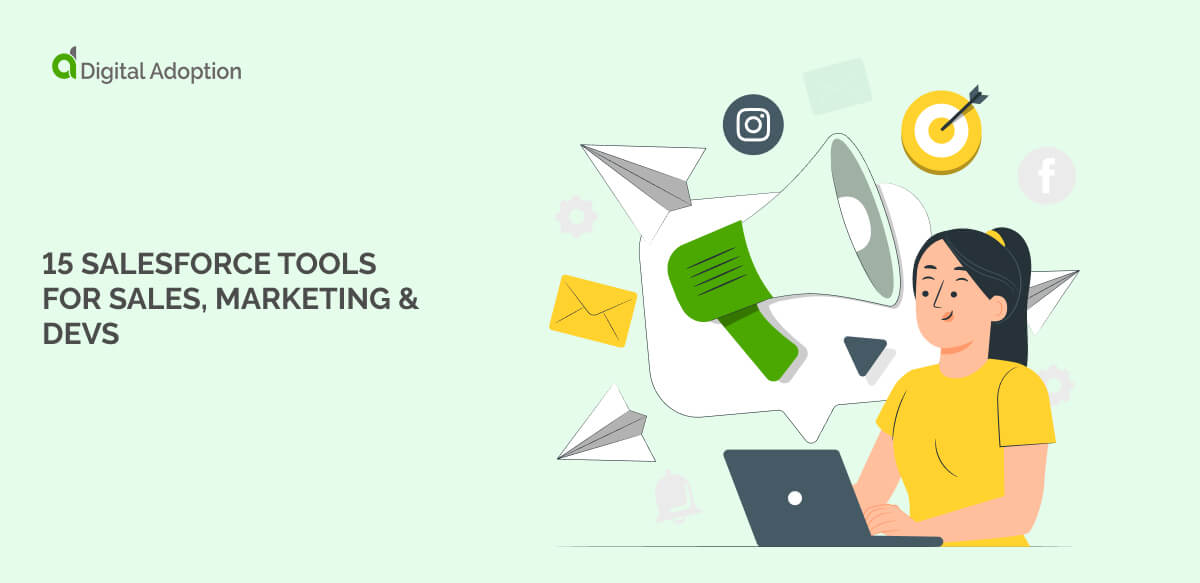Digital disruption and transformation define the global economy.
As some have said, it’s “disrupt or be disrupted.”
Competitive advantage in today’s world is often fueled by technology and driven by innovative strategies.
Such strategies include:
- New approaches to optimizing the customer experience
- Innovative products that break the mold in their industry
- Streamlining operations through a combination of new models and new technologies
- Data-driven processes that outperform previous models
- Automation that cuts costs and increases efficiency
- Changing business cultures, workplaces, and workflows
- Restructuring businesses to include new, modernized functions
This list is by no means exhaustive.
However, these seven examples offer a well-rounded perspective on industry changes.
Let’s look at each of these in more detail:
Digital Disruption and Transformation: Top Trends and Strategies
Over the past several years, technology has disrupted the way companies operate.
And it has also changed the way we interact and communicate.
This has spawned a new dynamic between customers and companies – which results in the first major trend…
1. New approaches to optimizing the customer experience
The customer experience has become a central point of focus for many businesses.
There are a few reasons for this:
- In today’s environment, customers have more choice than ever. Good brand experiences inspire loyalty. Bad experiences, however, can drive customers away.
- Technology has enabled new methods of interacting. Customers meet brands across a multi-channel spectrum, from mobile devices to TV to websites. Companies must evolve their service models to interact in this new multi-channel environment.
- The customer experience impacts the bottom line. Improved experiences increase sales, loyalty, and lifetime value. Optimizing these experiences positively impacts a customer’s relationship with the company.
Amazon, Apple, and many other leaders have pioneered new levels of customer service and experience.
Other companies would do well to follow in their footsteps.
2. Innovative products and services
Innovation is one of the biggest causes of digital disruption.
Amazon, for instance, innovated the online retail industry.
As a result, retail outlets – from Borders to Walmart – have lost major market share.
In the case of Borders, the company’s failure to transform proved fatal.
Similarly, other booksellers have been hit very hard by Amazon’s aggressive digital disruption.
The takeaway: innovation is disruptive … and those that don’t disrupt will be disrupted.
3. Streamlined operations, new operating models, and new technologies
Digital innovation can take many forms, even within a business.
A company can:
- Use technology to improve internal communications, making it easier to collaborate and work online
- Increase the speed-to-market for new products and services, through, for instance, lean business models
- Become more agile and responsive with new software development models
- Enhance digital adoption through digital adoption solutions and platforms
The list goes on.
The point is that digital innovation can help a business change the way it works – not just the products it offers.
Benefits of such internal improvements include decreased overhead, increased productivity, and better agility in the market, to name a few.
4. Data-driven processes and decisions
Data has been called “the new oil” by some, and for good reason.
It has become the very fuel that powers digital technology.
Without it, companies will have no insight into their customers, the marketplace, or their own organization.
It can help:
- Inform business decisions
- Offer insights into the business, the competition, the marketplace, customers, and more
- Predict future outcomes or conditions
Among other things.
Companies should make data a central pillar of their digital transformation efforts.
It should become integrated into new transformation efforts and even the very culture of the company.
5. Automation and augmentation of job duties
Automation is the future.
Though in its infancy, automation has already proven to generate significant returns.
Effective automation:
- Saves time and money by eliminating tedious, mundane tasks
- Frees up workers to handle more value-added, engaging activities
- Streamlines business processes and increases efficiency
- Reduces error rates
And much more.
Although there is some concern about over-automation, many businesses have simply reallocated worker time to different tasks … not eliminated positions.
6. Changes to business cultures, work environments, and workflows
To undergo true digital transformation, companies must do more than just “adopt new technology.”
They must:
- Adopt cultures that are open to change, digital technology, and transformation
- Change the way they perform their day-to-day duties – for instance, by implementing new online collaboration tools or new software platforms
- Become accustomed to more on-the-job learning
In short, the most disruptive companies are those that evolve at every level.
They don’t just implement new tools, they create new ways of thinking and working.
7. Organizational restructuring that enable continuous change and innovation
Digital transformation, adoption, and innovation are not stopping.
Nor are they slowing down.
To truly succeed, organizations must reevaluate their existing structures.
Many companies are integrating new functions into their models, such as:
- Permanent organizational change management functions
- Hubs or systems of innovation
- Digital adoption managers or digital transformation managers
- Digital strategy functions
And so on.
To truly keep up with the curve, businesses should not simply adapt … they should lead the way through innovation and disruption.







![18 Examples of AI in Finance [2025]](https://www.digital-adoption.com/wp-content/uploads/2025/06/18-Examples-of-AI-in-Finance-2025-300x146.jpg)
![14 Examples of AI in Manufacturing [2025]](https://www.digital-adoption.com/wp-content/uploads/2025/06/14-Examples-of-AI-in-Manufacturing-2025-300x146.jpg)




